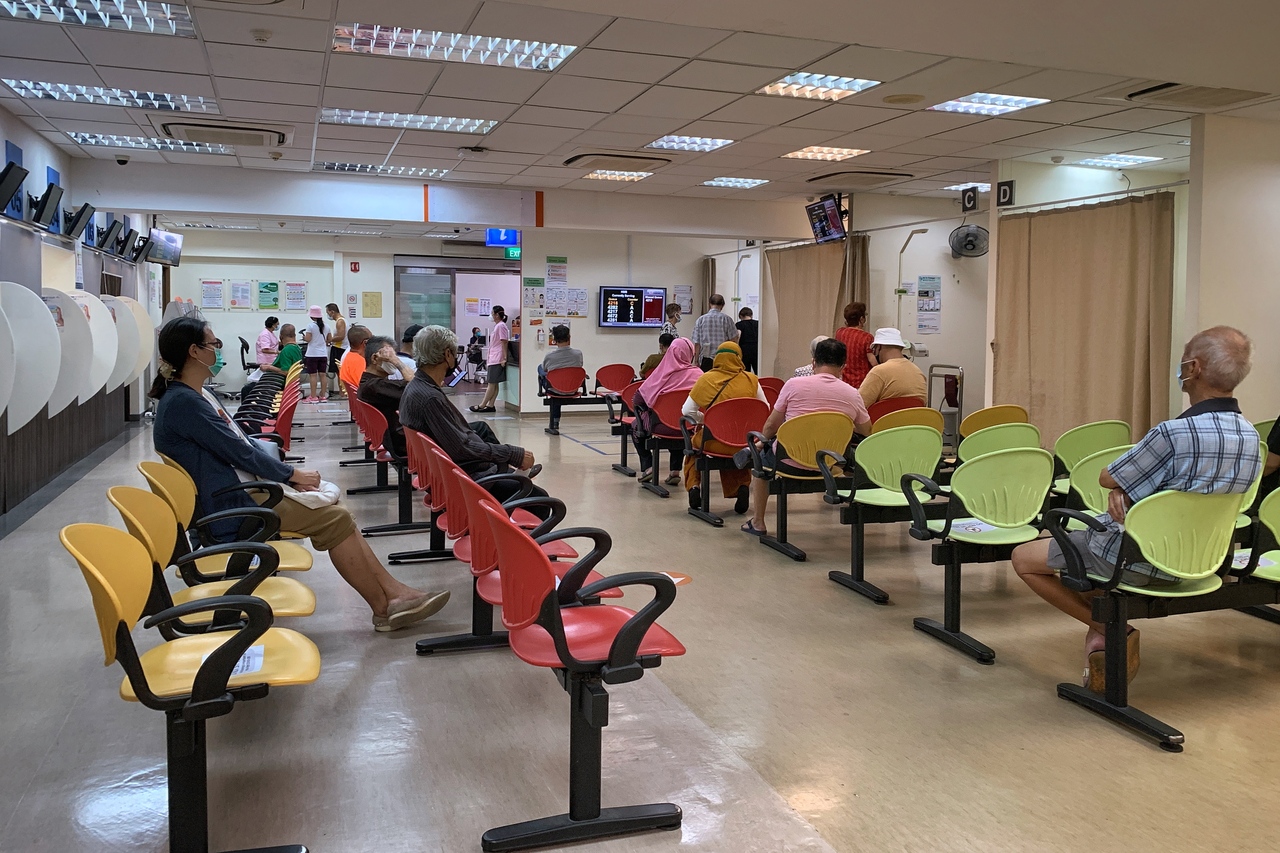Cash incentives, subsidies for MediShield Life among suggestions by MP to improve preventive health efforts
Sign up now: Get ST's newsletters delivered to your inbox

The incentives or subsidies can be provided to people who exercise or go for health screenings regularly, to encourage healthy behaviours and lifestyles.
PHOTO: ST FILE
Follow topic:
SINGAPORE - Cash incentives or subsidies for MediShield Life premiums can be provided to people who exercise or go for health screenings regularly, to encourage healthy behaviour and lifestyles.
Workers' Party MP Leon Perera (Aljunied GRC) gave this suggestion in a speech on Monday (Feb 14) - one of several he made on how Singapore could improve its preventive health efforts and policies, to reduce chronic disease conditions such as diabetes and hypertension.
Some health insurers in other countries have provided premium discounts to those who adopt behaviour that makes payouts for medical treatment less likely, he said in his adjournment motion at the end of a six-hour Parliament sitting.
He called for further studies on his suggestion to be done, noting that it would be a significant departure from current policies.
Mr Perera also proposed adopting a long-term, outcome-focused approach with regular reviews, rewarding individuals who make good health choices, and incentivising healthcare providers to focus on preventive healthcare measures with their patients.
He suggested providing healthcare providers with IT systems that can flag a patient who has not done a mammogram or blood screening recently, and prompt them to get that done, even while the patient is visiting for something else entirely.
"This would be the medical equivalent of a 'no wrong door' approach," he said.
Mr Perera also pointed to low take-up rates of national health screening programmes, with only 100,000 people out of the 1.8 million benefiting from the Health Promotion Board's Screen for Life subsidies.
The take-up rate of around 5.6 per cent is significantly lower than those of other places - 22 per cent in Japan and 30 per cent in Taiwan - which could be improved upon with lower costs, he added.
In response, Senior Minister of State for Health Koh Poh Koon said the hardest hurdle to overcome in driving up health screening rates would be an individual's mindset and health beliefs, which are not something that "policy or clinical protocols alone can change".
He noted that the national Screen for Life programme was introduced at more than 1,100 Community Health Assist Scheme GP clinics for eligible people with cardiovascular disease risk factors, and also certain cancers, such as breast, cervical and colorectal.
Eligible individuals pay no more than $5, and patients can use MediSave for approved screenings such as colonoscopy for colorectal cancer, he said.
However, according to the National Population Health Survey done in 2020, cancer screening uptake remained only between 40 per cent and 50 per cent for each of these three cancers.
This showed that beyond addressing cost, more has to be done to nudge people to go for screening, said Dr Koh.
He noted that improving preventive health has been on the Health Ministry's agenda for years, and cited a plan rolled out in 2016 to give general practitioners a key role in chronic disease management, among other policies.
Dr Koh added that Health Minister Ong Ye Kung had said on Saturday that a national programme focusing on preventive care will be launched to help rein in soaring healthcare costs and reduce the burden on patients' families.
More details of the programme will be given during the debate on the Health Ministry's spending plans, which comes after the Budget on Feb 18.
In his speech, Mr Perera also called on the Government to set clear goals for outcomes such as the proportion of people exercising regularly, and to state clear, short and medium-term targets to lower chronic disease incidence rates.
"It is useful to refer to participation rates for programmes and events, the number of app downloads, and so on. But these are effort indicators. We must not overemphasise effort indicators in our public communications... (as doing so) can lull us into a false sense of security," he said.
"We should prioritise outputs and outcomes, as these determine whether we have won or lost the battle."

